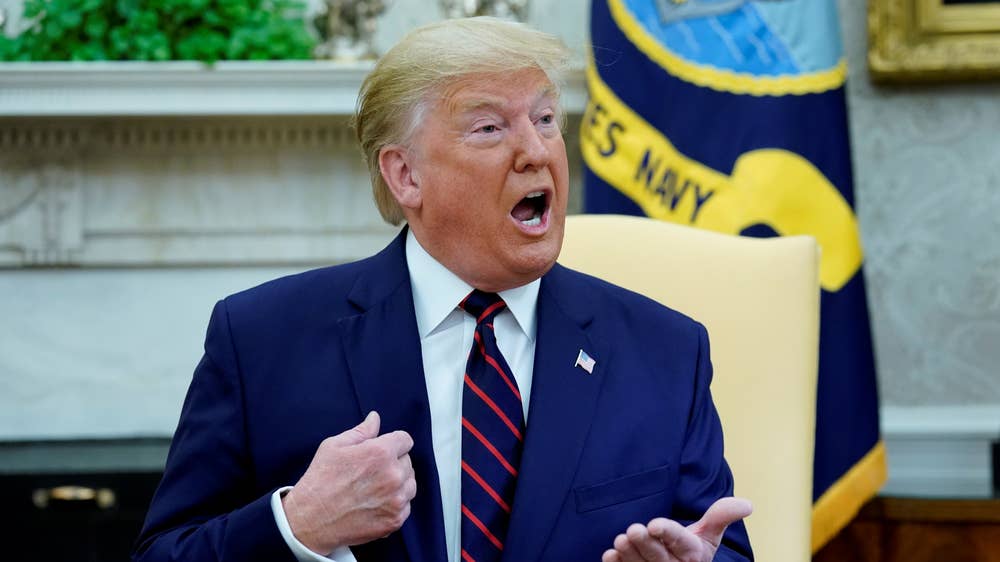‘America First’ Thinking Increasingly Exposes Shortsightedness
Donald Trump declared the Paris climate agreement an "unfair economic burden" for the United States, but this perception is simply untenable in the face of reality. [https://www.bbc.com/news/world-us-canada-50297029] Even though the agreement is not mandatory, it was voluntarily approved by 147 countries. Each country established goals for reducing carbon emissions, and it is not only the U.S. which faces an increased economic burden. Despite the standard expectation that greater restrictions lead to further losses, China, as the world's largest carbon emitter, has used the agreement to promise a high volume of emissions reductions. Therefore, the U.S. has no basis for complaining about economic injustice. It is even more important to notice that over the past three years, the U.S. has not implemented any constructive mechanisms for mitigating climate change. This type of destructive behavior shows that the issue for the United States does not lie in whether or not the agreement is fair, but whether it wants any limiting arrangement.
At its root, the United States’ withdrawal does not stem from being wronged, but is actually a calculated maneuver driven by the interests of small groups. For the Trump administration, the most important benefit of withdrawal is the success of his presidential reelection campaign. Under the pressure of slowing domestic economic growth, the Trump administration is focusing on a return to the global industrial chain. Traditional energy sources play an important role in economic planning, and the strict control of greenhouse gas emissions will only limit U.S. manufacturing. Therefore, the Trump administration is afraid to put pressure on the industrial sector in the name of environmental concerns. At the same time, there is a proliferation of populism in the United States, especially among Trump voters who generally blame the U.S. economic downturn on the challenges of supporting developing economies. President Trump needs to make emerging economies take on more international responsibility in order to appease the white middle and lower class voters who are the masters of his reelection.
More broadly, the Trump administration’s frequent retreat like actions in recent years reflect the dilemma that the U.S. faces due to its decline in relative strength. On the one hand, the United States wants to maintain its hegemonic status and prolong the hegemonic cycle, so it does not dare to squander its hard power. On the other hand, the basis of American hegemony is not only composed of hard power, but also relies on soft power. To maintain soft power, the U.S. must pay increasing hard power costs. In the end, the United States can only look after the present, and it chooses retreat because of the short-term benefits. A U.S. built around the slogan of "America First" is no longer the "beacon of liberalism" which Alexis de Tocqueville wrote about in "Democracy in America.”
The question is, does "America First" give the United States a strategic benefit? In the short term, the U.S. has indeed maintained or even increased some tangible material gains. But the cost of this temporary increase in income is the long-term loss of international credibility for the United States. Bankruptcy will lead to a decline in confidence in cooperation between the U.S. and other countries, and much cooperation that could have occurred may also be aborted. The Trump administration is eager to show off its achievements, but ignores the immeasurable benefits behind such achievements which have not come to fruition. Additionally, the U.S. will withdraw from the agreement over a very short period of time, leaving a large gap of responsibility. In the event of a global crisis, the tangible material interests of the United States will face further damage. Taking the Paris climate agreement as an example, the U.S., as the world's largest developed country, has goods, services and capital all over the world. Once climate change reaches a critical point, the United States will suffer the greatest loss.
This retreat is a concentrated expression of American shortsighted strategic thinking, but its impact on the world may not be completely negative. The decline of America’s hegemonic reputation and the collapse of the liberal story have led developing countries to collectively build more space for discourse, allowing them to become the main force in building a new world order. In the future, humanity will face more problems that must be solved collectively, and the process of forming an interconnected destiny is irreversible.

